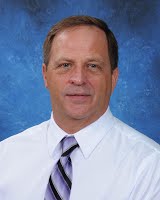SUPERINTENDENT ROSS UPDATE (Retired June 2021)
Superintendent Mark Ross retired in June 2021. This is an archived column.
Collaboration critical to student success

October 15, 2018
We were about an hour into a trip to visit my parents at their home on the Washington Coast, when my wife said she felt that the car was riding funny. Sure enough, after pulling to the side of the road and inspecting the tires, I noticed that one of them was almost flat. Fortunately, I had a can of “fix a flat” that I carry in my trunk, and was able to re-inflate the tire enough to get us to a shop where someone could repair it.
The mechanic let us know that we were lucky that we had pulled over and diagnosed the problem before something possibly more damaging had occurred.
Similarly in our schools, it’s important for our educators to occasionally “stop the car,” so to speak, and diagnose how students are progressing academically so teachers can “fix” any gaps there may be in students’ learning.
As our parents know, we have changed our school calendar this year to include one-hour late starts on most Wednesdays. The intent of these Late-Start Wednesdays is for our teachers to work in what we call Professional Learning Communities, or PLCs. The purpose of the PLCs is for our teachers to collaborate around student academic data, create common classroom assessments, and analyze student work samples. With this work our teachers can strategize how to help struggling students find a pathway to success or develop creative ways to challenge our more advanced students.
In different schools and at different grade levels, the groups of educators and discussions may vary, but the core goals of PLCs remain the same districtwide. Our goals are to ask and answer the questions: What do we expect our students to know and achieve? How will we know if they are learning? And how will we respond or intervene when they don’t learn or if they already know the material?
In a primary school it could be a group of third grade teachers breaking down data on a reading quiz that the team created together, deciding which learning standards students did not comprehend and determining the best strategies to present the lesson in a different way for better student understanding.
At a high school, a PLC could be a team of freshman English teachers collaborating on the best way to present Shakespeare so that it is relevant and inspiring to ninth grade boys. (Not a simple task by any means).
At another school you might have all middle school art specialists or all health and physical education teachers meeting to discuss the Washington State Performance Assessment in their subject area and how to best prepare students for success on it.
For all of these groups and the rest of our 800 plus teachers, it’s critical that they have the time to “pull over to the side of the road,” away from the hustle and bustle of their daily classroom, and come together with their colleagues to diagnose how to improve their students’ learning.
Some of our parents have asked why this can’t be done after school or in the summer. Most of our teachers already spend countless hours after school preparing lesson plans, meeting with parents, taking professional development classes from our district trainers, or coaching our student athletes, and that is before they pick up their own children from school or daycare.
In the summer, you will find many teachers taking classes to update their certification or improve their own practices.
To truly have professional learning communities work successfully and make a real impact on student learning, teachers need to be able to collaborate frequently and on a regular basis during the school year. We appreciate our community understanding the need for this critical time during the week to help our students reach their highest potential.
I hope that you get to take some time to enjoy the beautiful fall colors that our amazing area has to offer!










 11104 N.E. 149th Street,
11104 N.E. 149th Street,